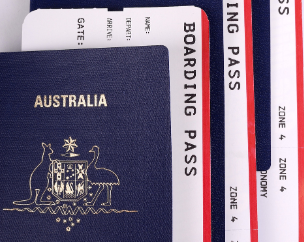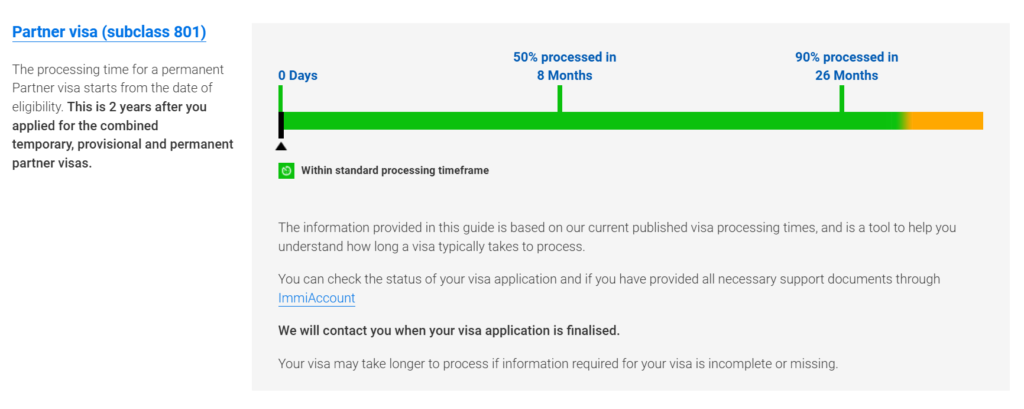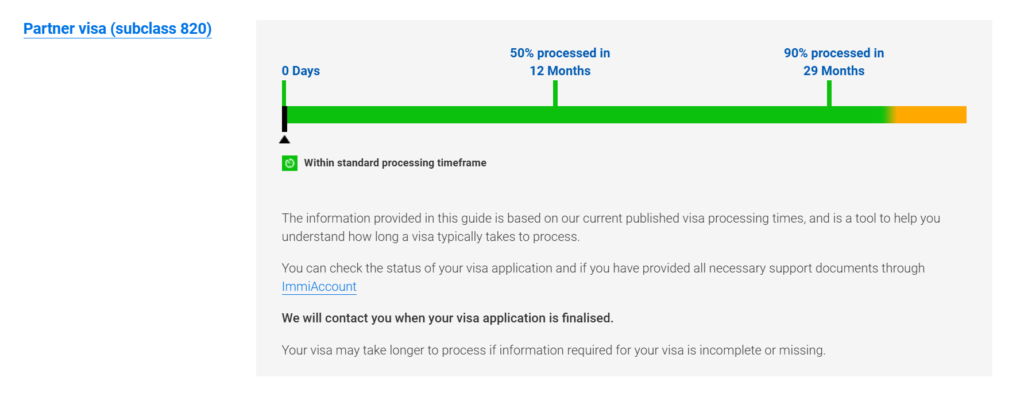成功案例分享:遭遇家庭暴力不等于签证终止,她勇敢说“不”,成功获批澳洲永久居民身份
前情提要
客户L女士是一位来自中国的年轻女性,在澳洲与一名澳洲籍男子结婚后,开始以配偶签证(Temporary Partner Visa)的身份生活在当地。她本以为婚姻是幸福的开始,却没想到逐渐陷入家庭暴力的阴影中。丈夫对她进行了长期的语言和肢体虐待,甚至限制她与外界联系。
但她一直不敢离开这段关系——因为她担心,一旦婚姻破裂,她的签证就会被取消,从而不得不离开澳洲。
很多人和她一样,在澳洲遭遇家庭暴力时,不敢发声、不敢寻求帮助,原因就是对移民身份的担忧。但其实,在澳洲法律下,如果申请人能证明自己在关系期间遭遇家庭暴力,即便关系破裂,他们依然有权申请并获得永久居留权。
在我们团队的协助下,L女士不仅成功拿到820临时签证,仅用时不到半年,之后也在短短半年内成功获得801签证,成为澳洲永久居民,彻底摆脱了婚姻束缚,也重获新生。

案件拆解:家庭暴力如何影响配偶签证?
很多客户都会问:
“如果我和担保人离婚了,那我的配偶签证是不是就没用了?”
其实不是。
根据澳洲《Migration Regulations 1994》移民法规第1.23条及 Schedule 2 条件,如果持有subclass 820 / 801 配偶签证的申请人在关系破裂前或期间遭遇了家庭暴力(Family Violence),可以通过家庭暴力豁免(Family Violence Provisions)继续申请801永久签证。
这一豁免机制的核心原则是:
澳洲法律不鼓励任何人因为签证问题而忍受家庭暴力。

我们如何帮助客户快速取得签证?
✅ 关键一:协助客户搜集与整合支持材料
我们在案件初期即协助客户梳理其所遭遇的家庭暴力情况,并协助其取得及整理相关支持性文件。这些材料对建立案件的可信度至关重要,也构成了客户后续申请中的重要依据。
✅ 关键二:有效运用家庭暴力豁免与加速审批机制
在与移民局的沟通过程中,我们强调客户在遭受家庭暴力后的实际困境,包括其人身安全、心理健康,以及持续留澳的正当性。在移民法规框架下,我们为客户争取到了:
- Subclass 820 临时签证在约 6个月内获批(移民局官网:50%的申请约需12个月,90%需29个月);
- Subclass 801 永久签证本应在820申请递交满2年后才符合评估资格,处理时间为50%约8个月、90%约26个月——但我们在820签证获批后即启动申请,并于 6个月内成功获批801签证。
在整个过程中,客户无需再依赖施暴伴侣作为担保人,也无需等待标准审理年限,就顺利获得澳洲永久居民身份(PR),安全稳定地重建人生。


律师小科普:什么是820/801签证?
澳洲配偶签证申请分为两个阶段:
- Subclass 820 临时签证
- 允许申请人在澳洲合法居留、工作与学习;
- 一般是第一阶段签证。 - Subclass 801 永久签证
- 通常在820申请递交满两年后才符合评估资格;
- 如关系中发生家庭暴力,可在不满两年的情况下提前获批。
法律,是保护你的工具
如果你正处于类似境况中,请记住:
“你的安全与尊严,远比签证重要。”
澳洲法律已经为你准备好支持机制,不论你是男性还是女性、来自哪个国家,只要你合法入境,法律都会为你提供保护。
如果你在澳洲遭遇家庭暴力,请勇敢地寻求专业帮助。我们将与您并肩,为您的安全和合法身份保驾护航。
如需了解更多配偶签证、家庭暴力豁免、移民法建议,欢迎随时联系我们的专业团队。
Family Violence Did Not End Her Permanent Partner Visa – It Strengthened Her Case
Background Story
Our client, Ms. L, is a young woman from China who moved to Australia after marrying her Australian partner. She entered the country on a temporary partner visa pathway, hoping for a new beginning and a stable future.
Unfortunately, her marriage took a dark turn. Ms. L became a victim of ongoing verbal and physical abuse at the hands of her husband. Over time, the abuse escalated to a point where her safety and well-being were at risk. Despite the trauma, she stayed silent — afraid that leaving the relationship would cause her visa to be cancelled and force her to return to her home country.
This fear is common, but often unfounded.
Under Australian law, applicants on a Partner visa (Subclass 820/801) who experience family violence during the relationship may still be eligible to continue with their application for permanent residency, even after the relationship ends.

Our Role: Helping the Client Take the First Step to Safety and Stability
When Ms. L approached our firm, she was unsure of her options and deeply concerned about her visa status. Our team provided her with immediate legal advice and outlined a clear strategy based on the Family Violence Provisions under the Migration Regulations 1994.
✅ We assisted the client in safely exiting the abusive relationship and provided legal guidance on how to gather and organise the necessary supporting materials to demonstrate the occurrence of family violence.
✅ We worked closely with Ms. L to prepare a comprehensive legal submission to the Department of Home Affairs, detailing her experiences and explaining her continued eligibility for the Subclass 801 visa under the applicable legal exemptions.
✅ We successfully lodged Ms. L’s Subclass 820 application with a complete supporting evidence package. After the 820 visa was granted, we proceeded to lodge her Subclass 801 application under the family violence provisions.
Both visas were granted in a significantly shortened timeframe compared to standard processing benchmarks:
- Subclass 820: According to the Department of Home Affairs, 50% of applications are processed within 12 months, and 90% within 29 months. Ms. L’s visa, however, was granted in just 6 months;
- Subclass 801: Although eligibility to be assessed begins two yearsafter the combined 820/801 application, with 50% processed in 8 months and 90% in 26 months, Ms. L’s 801 visa was granted just 6 months after the 820, without having to wait the full two years.
Ms. L is now a permanent resident of Australia, no longer dependent on her former partner, and able to move forward with confidence, safety, and autonomy.
Legal Insight: What Happens to a Partner Visa After Family Violence?
Many partner visa applicants worry:
“If I leave my sponsor, will I lose my visa?”
The answer is no, if certain conditions are met.
Under the Migration Regulations 1994, applicants may still be eligible for the Subclass 801 permanent visa if they can prove that family violence occurred during the relationship. This applies even if the sponsor withdraws their support or the relationship ends.
The family violence provisions are designed to ensure that victims of abuse do not feel forced to remain in harmful relationships just to maintain their immigration status.
What Are Subclass 820/801 Visas?
The Australian Partner visa process consists of two stages:
- Subclass 820 – Temporary Partner Visa
- Allows the applicant to live, work, and study in Australia temporarily.
- Typically, the first visa granted in the partner visa stream.
- Subclass 801 – Permanent Partner Visa
- Normally, applicants become eligible for assessment two years after lodging the combined 820/801 application.
- However, in specific situations — such as where family violencehas occurred — the applicant can be assessed for the 801 visa earlier, without waiting the full two years.


You Are Not Alone – And the Law Is on Your Side
If you or someone you know is experiencing family violence while on a partner visa, know that your visa options do not end when the relationship does. You have rights. You have legal pathways. And you have support.
No one should stay in a harmful relationship out of fear.
Our team has extensive experience in navigating complex partner visa matters, including those involving family violence. If you need help, please reach out to us — your safety and future are our priority.
Contact us today for confidential legal advice and guidance.

